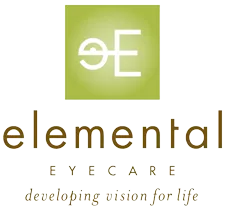
Can Vision Therapy Help with Post-Concussion Symptoms?
Headaches, dizziness, balance issues, vision problems, and other concussion symptoms could make life challenging long after your accident. Whether you've just been diagnosed with a concussion or had an injury weeks or months ago, vision therapy may improve your symptoms.
What Happens During a Concussion?
A concussion is a mild traumatic brain injury, often caused by sudden force or blunt trauma. Any event that moves your head forcefully can cause a concussion, whether it's a car accident, fall, sports injury, or even a rough roller coaster ride. Concussion symptoms occur due to damage in the tissues and cells in the head.
Although the damage to your brain may be considered mild, the symptoms certainly aren't. After a concussion, you may experience:
- Headaches That Last for Weeks
- Blurry or Double Vision
- Memory and Concentration Problems
- Overwhelming Fatigue
- Nausea and Vomiting
- Dizziness
- Sensitivity to Light and Sound
- Falls or Clumsiness
- Difficulty Reading
- Trouble Using Both Your Eyes Together, Particularly When Focusing on Near Objects or Following Moving Objects
These common concussion symptoms make it difficult to work, go to school, or participate in your usual activities. Symptoms don't always start immediately after an injury, but may appear hours or days later.
Improving Your Symptoms with Vision Therapy
Good vision requires effective coordination and communication between the brain and the eyes. According to the American Optometric Association, 70% of the brain plays a part in vision.
In a split second, your brain processes and interprets the information it receives from your eyes. Damage to your visual pathways or vision center could slow this process. A delay not only affects your vision, but may also cause problems with your balance, gait, depth perception, and eye-hand coordination. If your injury affects visual processing and memory, you may struggle to retain and remember information.
Double vision after a concussion could be caused by a focusing issue, while a tracking problem could make it difficult to read without losing your place. Irritability or anxiety, common concussion symptoms, could affect your relationships with your family, friends, and co-workers.
Vision therapy helps your brain reset and recover by enhancing the brain/eye connection. A research study published in Optometry and Vision Science examined the benefits of vision therapy for post-concussion vision disorders. Participants in the study struggled with focusing, eye teaming, and eye movement issues.
Accommodative insufficiency and convergence insufficiency were the most common problems the participants experienced. Both of these disorders make it difficult to focus on near objects and can cause double or blurred vision, fatigue, headaches, and trouble reading. Vision therapy was successful for 85% of the patients, while the remaining 15% saw an improvement in their symptoms. Thirty-three percent of patients reported successful treatment for accommodative insufficiency. The remaining 67% had improved symptoms.
Vision therapy treatment plans are tailored to your particular issues. During therapy sessions, you may work on improving your focusing ability, eye teaming and tracking skills, focusing, or peripheral vision. You'll gradually enhance your visual skills as you play computer games that improve eye movements, peripheral vision, tracking, and eye teaming. In addition to playing computer games, you may participate in hands-on activities designed to strengthen the connection between the brain and the eyes.
Your vision therapist may also recommend eyeglass lenses that sharpen your vision or make it easier to handle bright lights and glare. If you have double vision or balance issues, prism lenses might be helpful. The lenses alter the way light rays enter your eyes, improving vision.
Are you struggling with post-concussion symptoms? Vision therapy could ease your symptoms. Contact our office to schedule an appointment with the vision therapist.
Sources:
American Optometric Association: Concussions
https://www.aoa.org/healthy-eyes/eye-and-vision-conditions/concussions?sso=y
NCBI: Optometry and Vision Science: Vision Therapy for Post-Concussion Vision Disorders, 1/2017
https://www.ncbi.nlm.nih.gov/pubmed/27505624
CDC: What is a Concussion?, 2/12/2019
https://www.cdc.gov/headsup/basics/concussion_whatis.html
American Academy of Ophthalmology: Vision and Concussion: Symptoms, Signs, Evaluation, and Treatment, 8/2022
https://www.aao.org/education/clinical-statement/vision-concussion-symptoms-signs-evaluation-treatm
